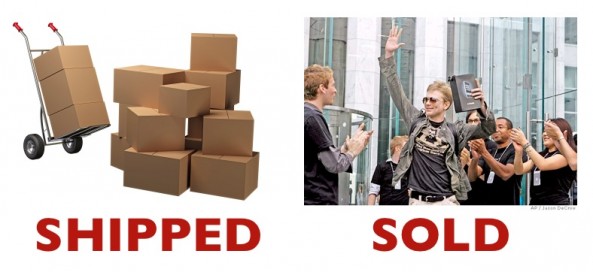There’s a headline bouncing around the tech blogs this morning that goes something like this: “Samsung Overtakes Apple to Become Top Smartphone Manufacturer.” The news comes in wake of Samsung’s earnings report it issued to investors this morning.
The Korean handset maker didn’t offer any specific numbers, but it did tell shareholders its smartphone shipments were up 40% this quarter. Some analysts are estimating that the increase equals 28 million smartphones, which clearly beats Apple’s 17 million, right?
Wrong. There’s actually a couple of issues with that statement. The first, and most obvious, is that Samsung didn’t offer any actual numbers of units shipped, just a percentage. Apple, on the other hand, announced its numbers publicly in its recent press release.
Then there’s the problem with estimations. The “28 million smartphones” comes from research firm Strategy Analytics, not from Samsung. And they don’t provide any evidence of where they got the data, or how they arrived at that particular number.
But let’s pretend for a moment that the number is accurate, there’s still something wrong here. Notice how Samsung says “smartphone shipments are up 40%” and Apple says “17.07 units sold.” What’s the difference between shipped and sold?
Shipped means units were delivered to carriers or retail chains, it doesn’t mean that they ended up in customer’s hands. How many Samsung smartphones (not necessarily SII’s, but Fascinates and Continuums) do you think stayed on the shelf or got shipped back?
Apple, however, runs its own retail chain. So not only does it have a good bead on what’s selling well, it has direct access to numbers. Not to mention that iPhone stock is constantly constrained, meaning the handsets are selling as fast as Apple can make them.
We’re not knocking Samsung, they obviously make some popular products. But just be careful when comparing shipped to sold. Samsung could have said that it shipped a billion smartphones, but that doesn’t mean it sold one.
[The Loop]
